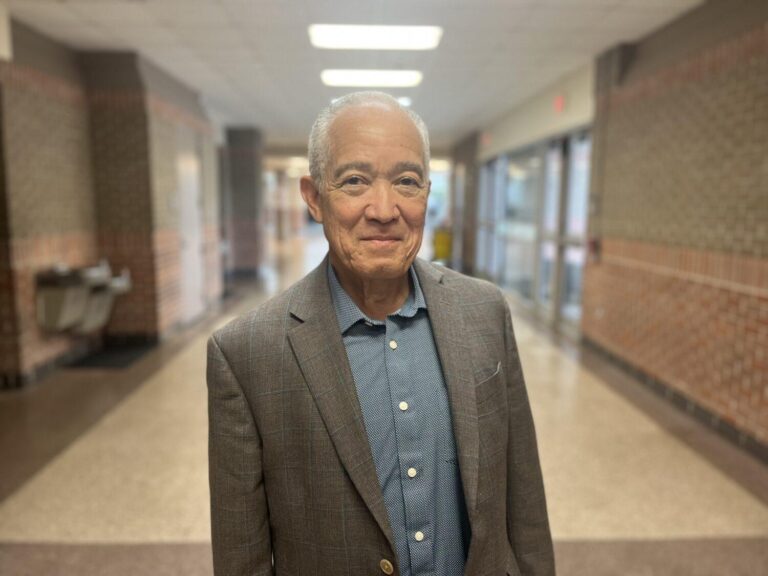HoustonŌĆÖs Superintendent Is Turning Around Struggling Schools
In the face of longstanding challenges within HoustonŌĆÖs public school system, Superintendent Millard House II is spearheading a transformative effort aimed at elevating academic performance and closing achievement gaps. Since taking the helm, House has implemented strategic reforms and increased community engagement, breathing new life into campuses once plagued by underperformance. This article explores the initiatives driving HoustonŌĆÖs educational turnaround and the impacts unfolding across the cityŌĆÖs most vulnerable schools.
Houston Superintendent Implements Data-Driven Strategies to Improve Student Outcomes
Recognizing the urgent need for measurable progress, the Houston Superintendent has spearheaded a transformation grounded in data analytics. By leveraging detailed student performance metrics and real-time classroom feedback, the district can now tailor instructional approaches that meet diverse learner needs effectively. This initiative includes the establishment of specialized dashboards for teachers and administrators, enabling rapid identification of areas requiring intervention and actionable insights to boost student achievement.
Key components of the data-driven approach include:
- Regular assessment cycles feeding into adaptive lesson planning
- Personalized learning paths facilitated by technology integration
- Enhanced teacher training focused on interpreting data trends
- Parent engagement platforms sharing student progress transparently
| Metric | Baseline (2022) | Current (2024) | Improvement |
|---|---|---|---|
| Reading Proficiency | 58% | 72% | +14% |
| Math Proficiency | 54% | 68% | +14% |
| Graduation Rate | 77% | 84% | +7% |
Engaging Communities and Teachers in Collaborative School Turnaround Efforts
Central to Houston’s school revitalization is a pioneering model that prioritizes authentic collaboration among educators, parents, and community leaders. The superintendentŌĆÖs approach recognizes that sustainable improvement cannot happen in isolation; it demands the voices of those closest to students’ day-to-day experiences. Regular forums and town hall meetings have been institutionalized, allowing a continuous feedback loop where teachers share insights on classroom challenges while parents and local organizations propose support frameworks. This collective effort ensures that strategies are not only data-driven but culturally responsive, addressing the unique needs of each neighborhood.
Key components of this inclusive framework include:
- Teacher leadership councils that empower educators to guide curriculum and policy changes;
- Community advisory boards to foster transparent communication and accountability;
- Partnerships with local nonprofits providing wraparound services such as health, counseling, and after-school programs;
- Family engagement initiatives that equip parents with tools to support learning at home.
| Stakeholder Group | Role in Turnaround | Impact Metrics |
|---|---|---|
| Teachers | Lead curriculum redesign, facilitate peer mentoring | Improved test scores, retention rates up 15% |
| Parents | Participate in committees, volunteer in schools | Attendance increased by 10%, stronger home-school ties |
| Community Leaders | Provide resources, advocate for equity | Expanded after-school programs, reduced absenteeism |
Targeted Investment in Resources Enhances Support for Struggling Schools
Strategic allocation of funds and resources has become a cornerstone in the Houston school district’s efforts to lift underperforming schools. By identifying schools most in need, the administration has deployed targeted investments in technology, staff training, and student support programs. This focused approach allows for rapid problem-solving at critical points, such as improving classroom materials and expanding mentorship programs tailored to studentsŌĆÖ unique needs.
Effective support also comes through collaboration with community partners and local organizations, which enhances resource availability beyond traditional budgets. Highlights of these new initiatives include:
- Enhanced professional development for teachers in struggling schools
- Expanded after-school tutoring and enrichment opportunities
- Upgrades to learning technology and infrastructure
- Parental engagement programs to foster student success at home
| Resource Type | Investment Focus | Expected Outcome |
|---|---|---|
| Technology | Classroom tablets, software licenses | Improved student engagement |
| Staff Training | Specialized workshops, coaching | Enhanced teaching effectiveness |
| Student Support | Mentorship and counseling | Better attendance and retention |
Recommendations for Sustaining Progress Through Leadership Development and Accountability
To ensure the momentum in Houston’s education reform continues, a dual focus on leadership development and accountability is indispensable. Emerging leaders must receive comprehensive training emphasizing adaptive management, data-driven decision-making, and community engagement. Programs tailored to cultivate district-wide leadership skills foster resilience and innovation, enabling principals and administrators to address evolving challenges effectively. Meanwhile, accountability mechanisms that are transparent and tied to student outcomes create a culture where continuous improvement is not only expected but systematically supported.
Collaborative frameworks between school leaders, teachers, and district officials have proven integral to maintaining progress. Below is an overview of key strategies that have been identified as best practices in sustaining educational gains:
- Regular performance evaluations: Integrated feedback loops promote ongoing refinement of leadership skills and school operations.
- Data transparency: Open sharing of student achievement metrics supports informed interventions and community trust.
- Professional learning communities (PLCs): Facilitating peer collaboration reinforces shared goals and accountability standards.
- Resource alignment: Ensuring personnel, funding, and materials prioritize schools demonstrating the greatest need.
| Strategy | Impact | Frequency |
|---|---|---|
| Leadership Workshops | Skill enhancement | Quarterly |
| Student Progress Reports | Data-driven decisions | Monthly |
| Community Forums | Stakeholder engagement | Bi-Annual |
Key Takeaways
As HoustonŌĆÖs superintendent continues to implement targeted reforms and foster community collaboration, the cityŌĆÖs struggling schools are showing promising signs of improvement. While challenges remain, the progress achieved under this leadership offers a hopeful model for urban districts nationwide. The ongoing commitment to addressing achievement gaps, enhancing resources, and prioritizing student success underscores HoustonŌĆÖs dedication to transforming its educational landscape for generations to come.




